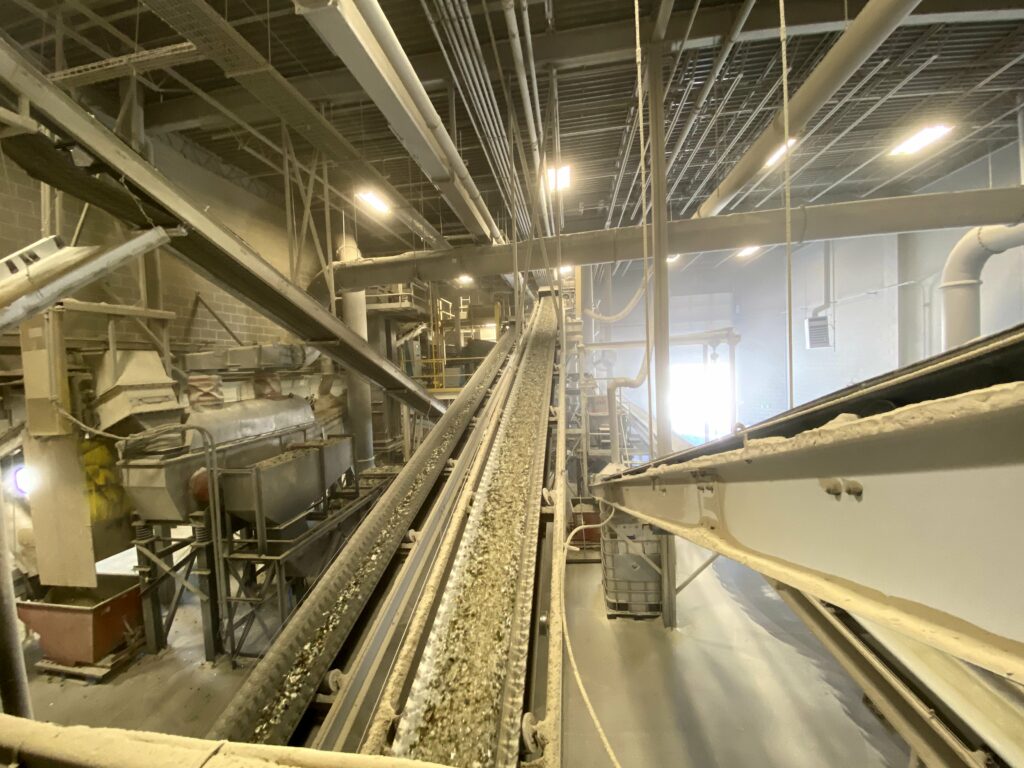
When Ripple Glass was founded in 2009, we set out bins across the metro to collect glass and built a state-of-the-art processing facility to process the glass. That first year, Ripple collected and processed a little over 10,700 tons of glass. Throughout the past thirteen years, we have expanded our collection to over 100 purple drop-off bins in the Kansas City metro, over 100 communities across nine Midwest states, over 300 businesses and multi-family homes, and are now piloting a curbside collection program. With that growth, more glass was collected, and more glass was kept from area landfills. Today, we collect and process over 45,000 tons of glass annually!
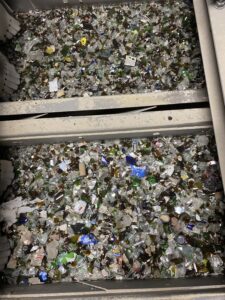
In the past few years, we noticed some very important equipment in our plant was becoming outdated and not recovering as much glass as we had hoped – specifically our optical sortation equipment. To provide some background, when the glass enters our plant, the bottles and jars still have lids, caps, neck-rings, labels, and other things that come with container glass. In addition, we often receive non-glass items that feel like glass (ceramic, stone, porcelain). The porcelain, ceramic, and stone are especially harmful to our end-users because they melt at a much higher temperature than glass, so it’s extremely important that we remove them before they get crushed with the rest of the glass.

There are stop-gaps in place all throughout the process to separate the glass from those non-glass items and the big one is the first optical sorter. Picture a river of glass that flows down a waterfall and is then hit with laser beams. Those laser beams look for non-glass items and when identified, a strong pulse of air pushes them to a different stream, separating them from the glass. The second optical sorter looks for color, specifically separating the brown or amber glass from the rest of the colors.
Processing plant is ready for upgrades
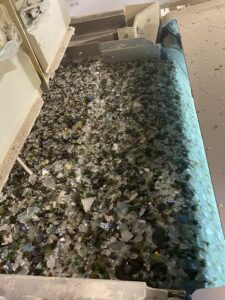
In 2021, we applied for a grant and received funding through the Missouri Environmental Improvement and Energy Resources Authority (EIERA), in cooperation with the Department of Natural Resources and Department of Economic Development with two goals in mind: investing in the future of glass recycling in our region and improving the capture and recovery of glass in our current process.
In addition, the impact Ripple Glass has made in glass recycling stood out to the Closed Loop Fund. The Closed Loop Leadership Fund is Closed Loop Partners’ private equity fund, focused on acquiring best-in-class circular business models that are fundamental to keeping plastics and packaging, food and organics, electronics, and textiles out of landfills and within a circular system. Because of our efforts and dedication to making glass recycling a circular economy, they decided to invest in the upgrade project and helped fund the improvements.
With this grant funding, we were able to update the obsolescent optical sortation equipment and in return, increase the capture and recovery of recycled glass. This upgrade will target the optical sortation system that identifies ceramic, stone, porcelain, and/or any other non-glass materials. In addition, the equipment will be able to better “see” true glass pieces that may be partially obscured on the processing line. The outcome of the upgrade allows us to retain additional glass to send to our end-users and avoid landfilling glass that was previously not identified properly. We hope to continue our growth and allow for even more glass to be kept out of the landfill for years to come!
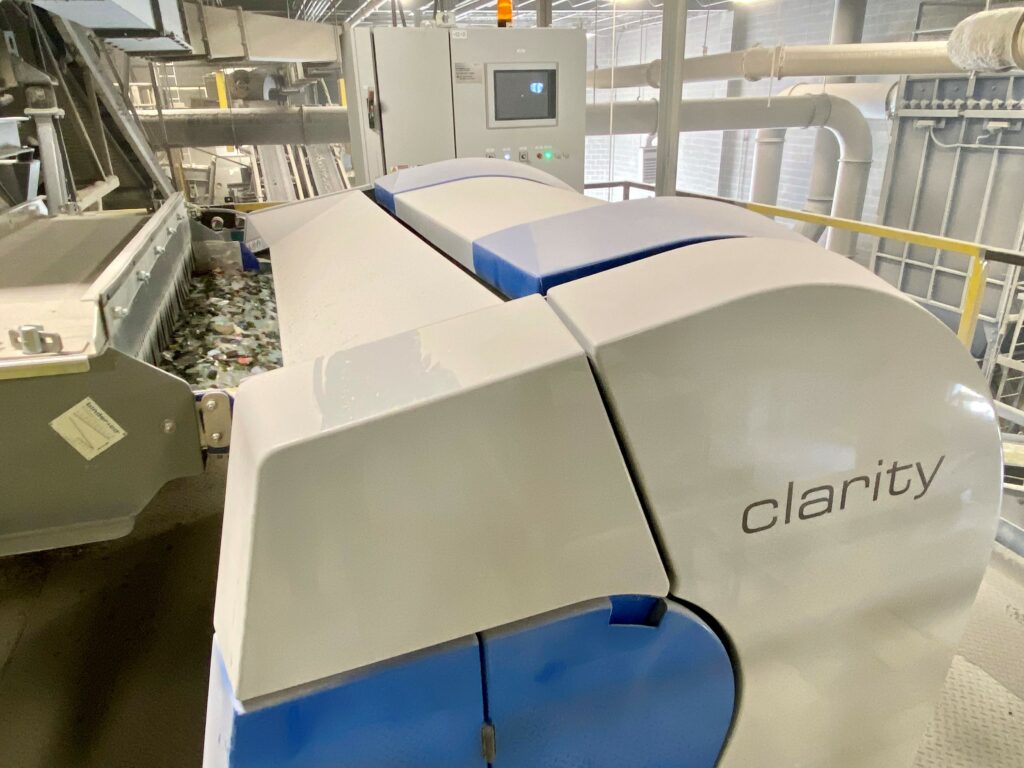
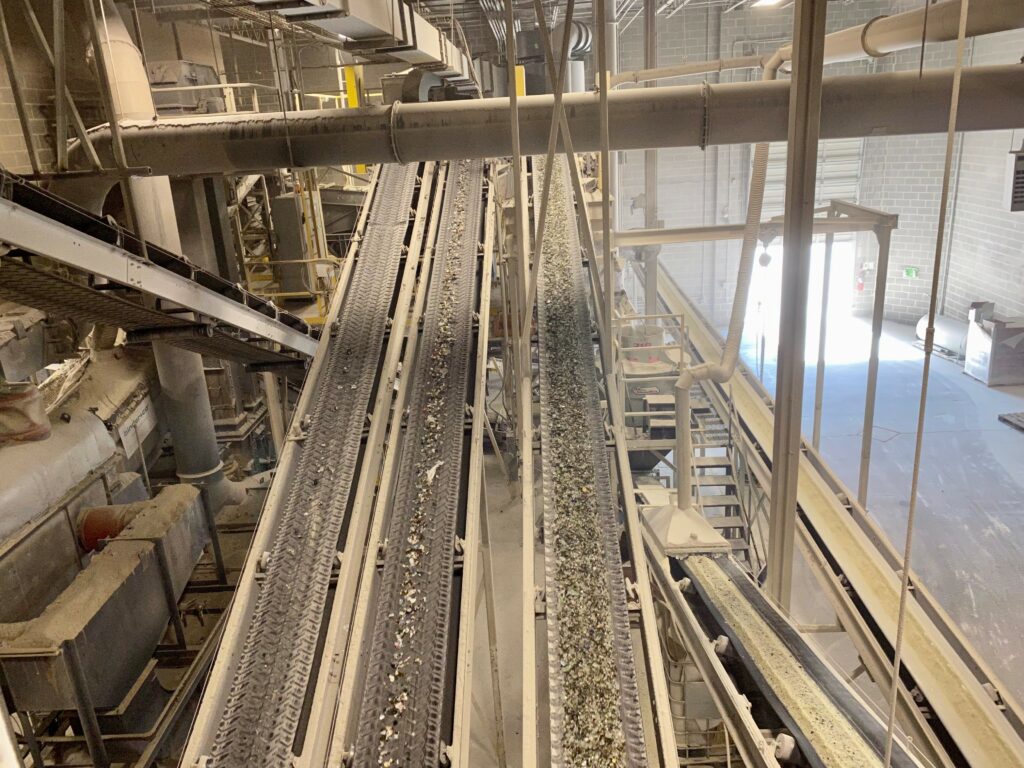
Our Plant
Find Us In Your Neighborhood
Live Green. Think Purple. Choose Ripple.
